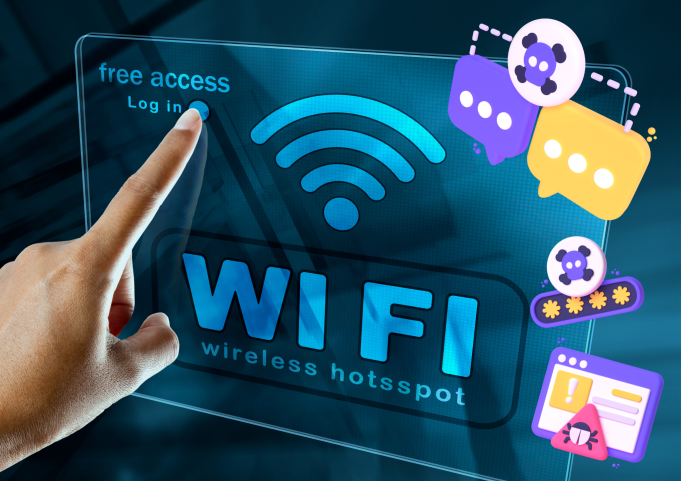Free public WiFi may seem like a great convenience in our busy lives, providing us with access to the internet on the go. Many public spaces, such as airports, cafes, and hotels, offer free internet connection as an incentive for their customers. For travelers and business professionals, this could be quite useful, allowing them to stay connected with their emails and documents.
However, it is important to be aware of the risks associated with public networks, especially those related to Man in the Middle (MitM) attacks. MitM attacks involve a malicious actor who intercepts the communication between two parties, while WiFi eavesdropping is a type of MitM attack in which the hacker monitors the activities of anyone who connects to its networks. Packet sniffers are often used to collect data and cookies theft and session hijacking are other risks associated with using public networks.
To protect yourself from MitM attacks, it is highly recommended to keep your phone, laptop, or tablet settings updated and to turn off any setting that allows your device to connect automatically to available networks. It is also a good idea to avoid performing any kind of financial activity while on public networks, such as cryptocurrency transactions. If you must use a public WiFi, make sure it is password-protected and check with an employee to verify its authenticity. Additionally, using a Virtual Private Network (VPN) is always the safest way to stay connected.
Furthermore, if you are not using your WiFi or Bluetooth, be sure to turn them off, as these can be a target of hackers as well. Lastly, be aware of any fake WiFi networks which may be created by cybercriminals under a similar name as to that of a nearby store or company.
Public WiFi networks are becoming increasingly popular, yet they may present a danger to unsuspecting users. It is essential to be informed of the many risks associated with public networks and the steps one should take in order to avoid becoming a victim of MitM attack. Keeping the tips above in mind could mean the difference between keeping your sensitive data safe and becoming the next target of a malicious cybercriminal.













